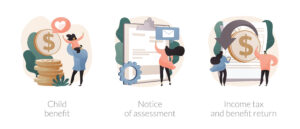Passion Investments: Why High-Net-Worth Individuals are Turning to Luxury Collecting
[vc_row][vc_column][vc_column_text]by Alan L. Olsen, CPA, MBA (Tax)
Mananging Partner
Greenstein, Rogoff, Olsen & Co.
Posted: 3/1/11
In times of economic uncertainty, bad news is good news for collectors and sellers. This uncertainty drives capital out of the stock market but at the same time, causes investments like art, wine and fine jewelry (among others) to enter the market. When typical investments are down, people sell their collectibles and when the stock market seems like a relative loser, art, wine, and fine jewelry can be great investments.
Record low bond yields and market volatility are causing investors to look elsewhere for investment opportunities. Tangible investments which yield a decent long-term return and provide enjoyment are becoming increasingly popular. These “passion investments” are typically rare, luxury items that the investor is passionate about owning and enjoying – from fine art to yachts.
The Capgemini and Merrill Lynch World Wealth Report 2010 found that high-net-worth individuals are returning to passion investment as “investor-collectors”, seeking out those items that are perceived to have tangible long-term value. According to the report, the two categories found to be the most attractive were art and “other collectibles” such as coins, antiques or wines.
Aside from the enjoyment of securing the ultra rare collectible piece, these long-term investments are proving to be a good way to diversify a portfolio:
During the first half of 2010 the Mei Moses All Art Index which tracks auction prices gained 13.5% compared with a 6.5% fall in the S&P500 index during the same period.
The Liv-ex Fine Wine Investables index, which tracks the price of fine wines from 24 chateaux in Bordeaux, was up 27.2% from the beginning of 2010 to the end of August.
In the first quarter of 2010, yacht brokerages closed nearly 30% more sales than a year earlier, with a 70% increase in valuation, according to a survey by UK broker Yachtworld.com.
As long as the financial environment remains uncertain, demand for tangible assets is likely to increase.
Tax Implications
Collectibles are taxed in two different tax brackets:
Short-Term Collectible Capital Gains Tax Rates: Collectibles held less than one year are taxed at personal income tax rates, just like short-term capital gains taxes on stocks or bonds.
Long-Term Collectible Capital Gains Tax Rates: Collectibles held one year or longer are taxed at 28%.
The IRS defines collectibles as:
• Stamps • Fine Art
• Coins • Precious Metals (Including Coins)
• Alcoholic Beverages (Like Fine Wine) • Precious Gems
• Rare Rugs • Antiques
For additional information please see our article Calculating Capital Gains Tax on the Sale of a Collectible at www.GROCO.com or contact Alan L. Olsen, CPA, MBA (Tax), Managing Partner of Bay Area CPA firm Greenstein, Rogoff, Olsen & Co., LLP at 510-797-8661.[/vc_column_text][/vc_column][/vc_row]
Top Tax-Saving Moves Used By High Net Worth Individuals
One of the biggest complaints certain groups or individuals have against the wealthy is that they can take advantage of too many tax breaks and loopholes to lower their tax bill. So what are some of the top tax strategies that high net worth individuals use to keep their tax rates down, and could anyone…
Should University Donations Trigger Tax Breaks for the Wealthy?
Universities big and small receive donations from many different sources, including wealthy alumni. However, not all donations are created equal and because the wealthy donors get a huge tax break for their significant donations, some wonder if that is really fair. For example, Nike co-founder, Phil Knight, recently donated $400 million to Stanford, where he…
Money-Saving Tips for Freelancers
When you hear the term freelancer, you might think of someone working a small business out of his or her home and just doing things on the fly. However, freelancers come in all forms and many owners of small businesses or startups are also freelancers. Being a freelancer means you are self-employed and being self-employed…
Who Really Qualifies as a Dependent for Taxes?
How many dependents do you really have? Who can really be counted as a dependent? These are some of the most common questions that all taxpayers have. Can you count all of your children, live-in help, or perhaps a dog or other family pet? What about a friend who decides to crash at your place…




